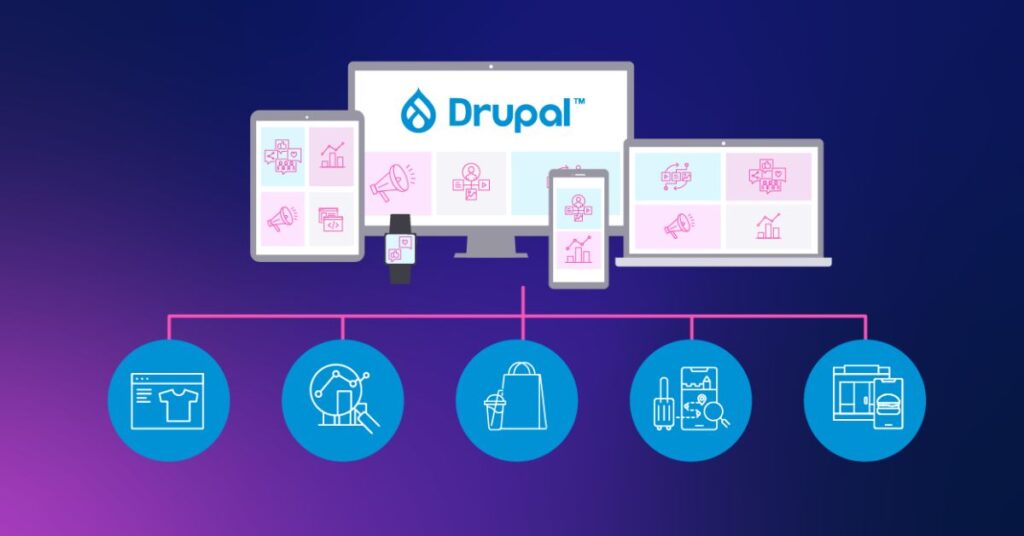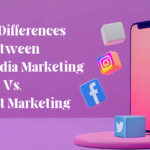The reason why millions of individuals decide to create their websites with WordPress is that WordPress is simple for anyone to understand. WordPress, however lacks the ability to adequately meet everyone’s demands.
A WordPress competitor will be helpful to those trying to find a comprehensive website builder as well as simplified site management requirements.
Yes, I know that you are tired of using WordPress. You feel too bored to handle many plugins while using it. Do you want to know the best substitutes for WordPress? I know your answer is definitely “yes.” That’s why you are here.
Because of some limitations that WordPress has, you may be wondering what other platforms exist that you may utilize in place of WordPress. Just feel free. I am here to solve your problem. Yes, I have come up with the best 7 WordPress alternative content management systems that you can use in 2024.
I was also one of the users of the WordPress content management system a few years ago and found it hard to use it because of its security issues, constrained website designs, and other problems it has.
Hence, I was surfing the internet to identify the best content management systems (CMS) that can substitute WordPress. Finally, I found some better content management systems compared to WordPress, which are going to be discussed in the forthcoming sections of this article.
Before entering into the main content of this post, first I would like to discuss a little about the term WordPress.
What is WordPress?
WordPress is now the world’s most widely used content management system (CMS), serving over 60 million websites. Using WordPress to create a high-quality website rather than anything else would be wiser. Though it was first developed as a free, all-in-one blogging platform, WordPress is now increasingly being utilized as a website builder and content management system (CMS).
WordPress is a simple-to-operate, programmable, and flexible platform that allows you to create a broad range of websites for personal use, businesses, and portfolios. It is also relatively secure, SEO-friendly, and capable of handling various media types.
However, the primary benefit of utilizing the WordPress platform is that you may publish your material online without needing technical knowledge like coding skills. However, because of a few shortcomings, many are looking for other platforms in place of WordPress. Continue reading to find out the best 7 WordPress alternatives you can use in 2024.
What are the 7 Alternative CMS to WordPress in 2024?
Even though there are several CMS, you can alternate with WordPress. You may be wondering how to identify the best ones. Through this piece of writing, I am going to guide you through the best 7WordPress alternatives.
01. Shopify

For online eCommerce shops, Shopify is the top WordPress substitute. It’s a feature-rich platform that is specifically meant for building eCommerce stores, with several functions that simplify store owners’ tasks. Its price starts at 29$ or more with transaction fees. However, the good news for you is you can have a 3-day free trial when you start using it.
It is also a reliable piece of software with a low failure rate and several methods to operate. One important feature that sets Shopify apart from WordPress as a viable alternative is its ease of setup, particularly for individuals who are new to eCommerce. It offers a much easier setup procedure. For individuals looking to enter the eCommerce space without much technological knowledge, this simplicity of use is revolutionary.
02. Squarespace

If you want a perfected, fascinating website without having to know how to code or design, Squarespace is still the best option. For a single monthly fee that starts at 19$ or more, you receive a comprehensive package that includes email marketing, domain names, hosting, design, and assistance. However, Squarespace will hit your heart with happiness with its unbelievable 14-day free trial when you start using it.
Furthermore, it is a strong alternative to WordPress because of its simpler instructional process and user-friendly design, which consists of more than 100 masterfully generated templates. Moreover, Squarespace provides all the services under one dome, unlike WordPress, where you can manage various plugins to acquire the ideal blend of customization.
Click Here to Try Squarespace Now
03. Wix

For people who are searching for a simple solution to create a website but do not have any coding skills, this platform would be ideal, You can buy it just for 16$ with the ultimate 14-day free trial. It provides you with an easier-to-use platform than WordPress by fusing robust functionality with a user-friendly appearance.
Like the above two platforms discussed, there is no need for coding skills for a user of the Wix platform, and it is well known for having drag-and-drop options like PowerPoint while the process of customization increases its level from WordPress.
If you are hoping to expand your business considerably or searching for more sophisticated customization choices, Wix may be too limited for you.
04. Drupal

If you are searching for an alternative content management system to WordPress that costs nothing, Drupal is one of the best choices for you. Yes, you do not need to spend your money to buy it. It is completely free.
Adaptability, modularity, and security are among the most significant benefits of Drupal, known as one of the free WordPress substitutes on our list of recommended alternatives. Drupal features modules, while WordPress offers plugins. Users and developers with prior expertise in HTML, CSS, PHP, and web design will find it most useful. So, what are you waiting for? Try Drupal now!!
05. Joomla

This is an additional free, feature-rich open-source content management system that gives users customization options for the settings on their websites. It works well for developers and consumers who have prior familiarity with web development, much like Drupal. With Joomla, you may add the features you need to personalize your website with hundreds of free, vetted third-party extensions and themes.
06. Webflow

Webflow is another CMS that you may consider picking as a substitute for WordPress. Just by spending $14 per month, you can access the mind-blowing features of Webflow. Furthermore, it offers you a free limited plan where you can learn about it without spending money.
Moreover, Webflow is a visual-first content management system that lets you create and customize your pages visually while it handles the coding. SEO, security, eCommerce functionality, and interfaces with third-party plugins developed by the community are all embedded in it.
07. Hubspot

More than simply websites, Hubspot provides a whole digital growth platform. Website creation, content management, and customer relationship nurturing are all handled by HubSpot, a one-stop shop for marketers and sales teams. Strong security features, such as a worldwide CDN and Web Application Firewall, integrated SEO and marketing attribution tools, seamless integration of marketing and CRM infrastructure, and potent linked analytics, are the distinguishing features that set it apart from other CMS.
When it comes to the price of Hubspot, it starts at $30 per month and provides certain features for free.
For your next large website project, it might not be a smart idea to immediately jump into one of the aforementioned options if you’re already committed to WordPress and don’t have any serious problems with it. However, you might think about looking at these other possibilities if you have a tiny online project that would benefit from adopting a WordPress alternative.
What are the Other WordPress Alternatives Other Than the Above 7 CMS?
- Duda
- Blogger
- Weebly
- CMS Hub
- Ghost
- Hostinger
- Google Sites
- Content Hub
- Magento, etc.
FAQs:
01. What are the limitations of WordPress?
Security issues
Need of high maintenance
Huge number of plugins
Costly when your site grows
Low speed of the page
Constrained website design, etc.
02. What is the Best WordPress Alternative CMS?
We realize you want to choose the best option for yourself, even if we like WordPress and go above and beyond to make creating with it simple. This is the reason you are reading this post. The eCommerce platform on the list, Shopify, is a fantastic substitute for WordPress, which is what I advise you to use.


